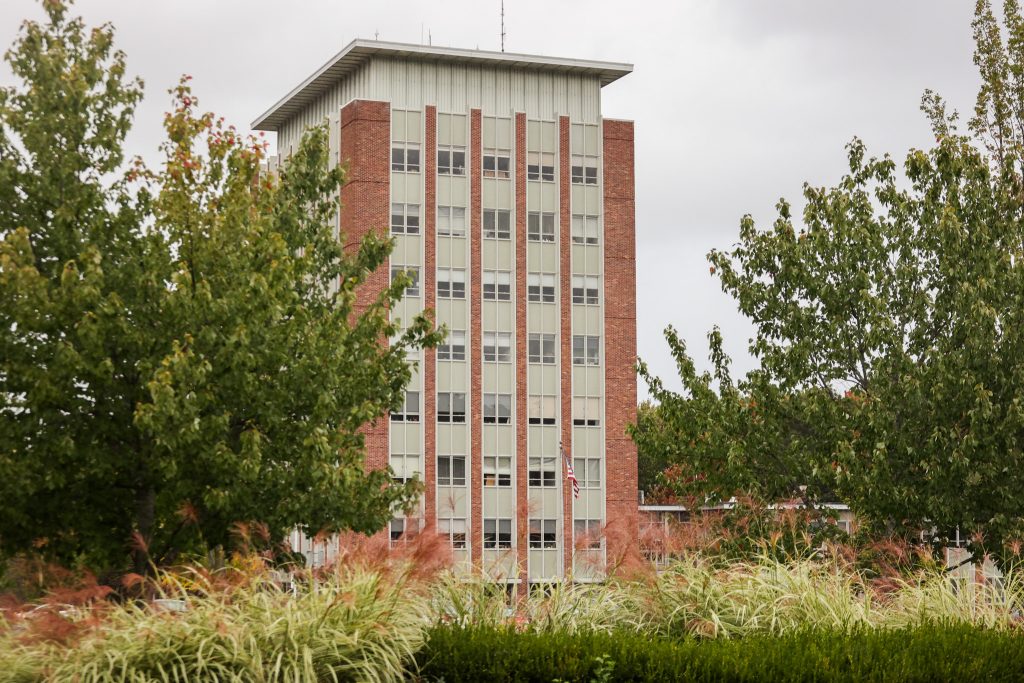Binghamton University’s recently released Annual Security and Fire Safety Report indicated a decline in rape and drug and alcohol-related crimes — though dating violence numbers remained constant and stalking cases increased.
The report reflects crime and fire safety statistics on University properties for the three years between 2020 and 2022. As mandated by the Clery Act — a law passed by Congress in 1990 that requires colleges and universities to report campus crime data — a designated University administrator coordinates with several other offices to compile crime statistics collected from campus security authorities (CSAs) and disclose the report annually. In 2022, 12 rape cases were reported, a decrease from the 21 cases reported in 2021. Reported drug and alcohol conduct referral cases fell from 159 to zero and 339 to 159 from 2021 to 2022. Reported dating violence cases remained nearly the same and stalking cases increased from 47 to 69.
In a joint statement, Anna Jantz, an advocate and senior case manager at the Violence, Abuse and Rape Crisis Center (VARCC) and Andrew Baker, the University’s Title IX coordinator, described the report and provided possible reasons for changes in case trends.
“The reportable incidents, crimes and properties are defined by the federal government and, therefore, do not represent a complete list of all crimes and incidents of which students may be aware,” they wrote in an email. “The things that are most likely to influence the statistics in terms of upward or downward trends are changes in state or federal law [or] in University policy. One example of this would be New York state changing laws regarding marijuana over the past few years.”
Jantz and Baker said that they are awaiting the federal government’s final Title IX rules, which were anticipated to arrive in October. The University’s Title IX office is coordinating with other offices to review proposed changes and make necessary updates. They added how the VARCC has worked to create a safe and inclusive environment for crime victims.
“The VARCC helps those directly or indirectly impacted by sexual and interpersonal violence, such as sexual assault, dating and domestic violence and stalking, through an empowerment-based approach,” they wrote. “Although victims of sexual and interpersonal violence often face barriers to reporting, by offering students a variety of resources, the VARCC is working to make support as accessible as possible. We aim to empower students as they go through their healing journey and advocate collaboratively to meet their varied needs.”
Other campus resources for victims of crime include the University Counseling Center (UCC) and 20:1, a peer education program that provides programming about issues including dating violence and sexual assault prevention.
Sujin Kwon, a junior majoring in accounting, shared her experience living on campus and how safety on campus can improve.
“I have personally never felt unsafe about stalking while walking around campus,” Kwon said. “However, it would be nice to have more lights on campus, especially on the road to East Gym and the road between the Union and the Lecture Hall. To make women feel more safe on campus, I think the school could provide more cameras and lights around campus.”
Nathan Slisher, a junior double-majoring in biology and geological sciences, discussed how the BU community could make people feel safer.
“It is not on the victims but the ethics and responsibilities of people around them to prevent [such crime] from happening,” Slisher said. “I think creating more culture of looking out for people is essential. I am not sure whether that should start from top-down from the University or bottom-up from individuals, but that kind of culture is important.”



